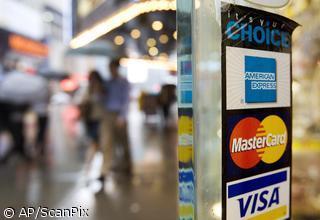Founders of a new antispam service say they have developed a system to convince spammers to remove specific e-mail addresses from their mailing lists
Published:
16 September 2003 y., Tuesday
Founders of a new antispam service say they have developed a system to convince spammers to remove specific e-mail addresses from their mailing lists, but two major spam-fighting groups are warning potential subscribers to stay away.
The service, offered by San Antonio, Texas-based Global Removal, charges subscribers a $5 lifetime fee to have their e-mail addresses put on a permanent do-not-spam list. Addresses on the list are then compared with, and removed from, mailing lists maintained by Global Removal's partnering businesses -- more than 50 known spammers and an equal number of legitimate e-mail marketers.
Global Removal CEO Tom Jackson believes that, unlike other attempts at creating do-not-spam lists, his company's system will work because it gives spammers an incentive to cooperate: money.
Although businesses that sign up to partner with Global Removal agree to remove addresses from their lists for free, they are enrolled in an affiliate program that earns them $1 for every new subscriber that they bring to the service.
To keep Internet users from being bombarded with messages about Global Removal, the businesses are only allowed to send out one message about the service to their cleansed mailing lists.
Šaltinis:
wired.com
Copying, publishing, announcing any information from the News.lt portal without written permission of News.lt editorial office is prohibited.
The most popular articles
Software company announced new structure_ of it_s business.
more »
 Microsoft's Bing search engine will be the sole provider of search and paid search technology for all of Yahoo's websites. Yahoo will sell premium search ads for both companies.
more »
Microsoft's Bing search engine will be the sole provider of search and paid search technology for all of Yahoo's websites. Yahoo will sell premium search ads for both companies.
more »
 Thales UK today announces that its Cat III Instrument Landing System (ILS)1 has received UK approval for installation at Bournemouth Airport.
more »
Thales UK today announces that its Cat III Instrument Landing System (ILS)1 has received UK approval for installation at Bournemouth Airport.
more »
 Postbank customers can now pay their fuel bills at Shell service stations and withdraw cash as stations in Hamburg, Germany, have been converted to the new technology from Wincor Nixdorf International.
more »
Postbank customers can now pay their fuel bills at Shell service stations and withdraw cash as stations in Hamburg, Germany, have been converted to the new technology from Wincor Nixdorf International.
more »
 Japanese company Crescent has simulated a series of emergency situations that people may have to deal with in the workplace. By practicing with these simulations they can learn how to cope with a real-life crisis.
more »
Japanese company Crescent has simulated a series of emergency situations that people may have to deal with in the workplace. By practicing with these simulations they can learn how to cope with a real-life crisis.
more »
 The touchscreen device built on Google's Android platform equates to a bold attempt by HTC to take on Apple's popular iPhone - not by creating a copycat - but by building an attractive alternative.
more »
The touchscreen device built on Google's Android platform equates to a bold attempt by HTC to take on Apple's popular iPhone - not by creating a copycat - but by building an attractive alternative.
more »
 A devious piece of criminal coding that has been quietly at work in a clutch of ATMs at banks in Russia and Ukraine has recently been discovered.
more »
A devious piece of criminal coding that has been quietly at work in a clutch of ATMs at banks in Russia and Ukraine has recently been discovered.
more »
 In the person-to-person transfer business, text messaging is so 2008.
more »
In the person-to-person transfer business, text messaging is so 2008.
more »
 Bank Central Asia, one of Indonesia's largest banks, has partnered with Wincor Nixdorf International to rejuvenate its branch network.
more »
Bank Central Asia, one of Indonesia's largest banks, has partnered with Wincor Nixdorf International to rejuvenate its branch network.
more »
 What's cooking at Tokyo's International Food Machinery and Technology Expo? For this robo-chef, it's okonomiaki, Japanese pancakes.
more »
What's cooking at Tokyo's International Food Machinery and Technology Expo? For this robo-chef, it's okonomiaki, Japanese pancakes.
more »
 Taking attendance at Aoyama University used to be a chore, but no longer as the Japanese school is giving over 500 iPhones to students and faculty in an effort to enhance the classroom experience.
more »
Taking attendance at Aoyama University used to be a chore, but no longer as the Japanese school is giving over 500 iPhones to students and faculty in an effort to enhance the classroom experience.
more »